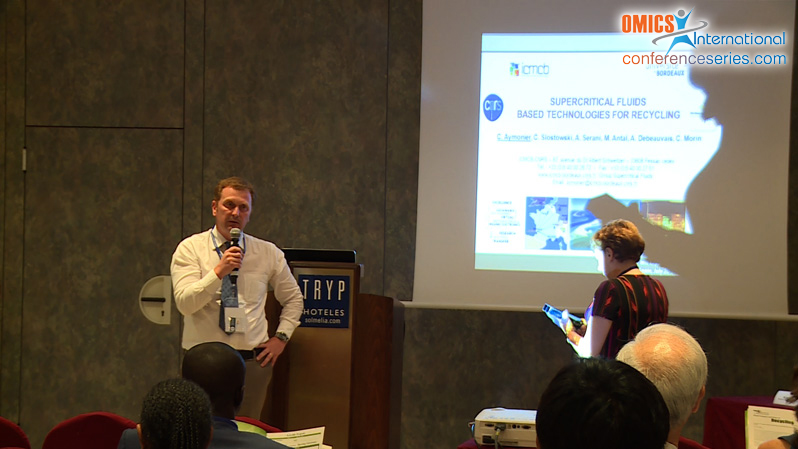
Cyril Aymonier
Chemistry Institute of Condensed Matter of Bordeaux (ICMCB-CNRS), France
Title: Supercritical fluids based technologies for recycling
Biography
Biography: Cyril Aymonier
Abstract
Supercritical fluids have been investigated for more than 20 years for chemical reactions and processes. Especially, water above its critical point (Tc = 374°C, pc = 22.1 MPa, ρc = 0.322 g.cm-3) exhibits remarkable tunable properties and has been at the origin of major developments in the field of environment: supercritical water oxidation (SCWO) for wastewater treatment and supercritical water hydrolysis (SCWH) for biomass conversion and recycling. After a brief introduction to supercritical fluids (specific properties and industrial development), we will present two major aspects of materials’ recycling using supercritical water: recycling of plastics and composite materials. Chemical recycling of plastics using supercritical fluids has been developed extensively in Japan since 1995 with the depolymerization of condensation polymers into their monomers. The example of PolyEthylene Terephthalate (PET) bottles recycling is significant in term of quantity but also of development of supercritical fluid based recycling technologies. Beyond plastics recycling, in the last five years, hydrolysis in near and supercritical fluids of thermosetting resins (phenol and epoxy resins) has attracted a great interest among the scientific community to recover materials like carbon fibers, with a high added value, without degrading the fibers mechanical properties.We will show that hydrolysis reaction can be completed with alcoholysis reaction using near and supercritical alcohols. Other applications of this technology are under investigation as the recycling of non-metallic fractions from printed circuit boards’wastes, of food packagingor still the recovery of silicon from silicon sludge.

